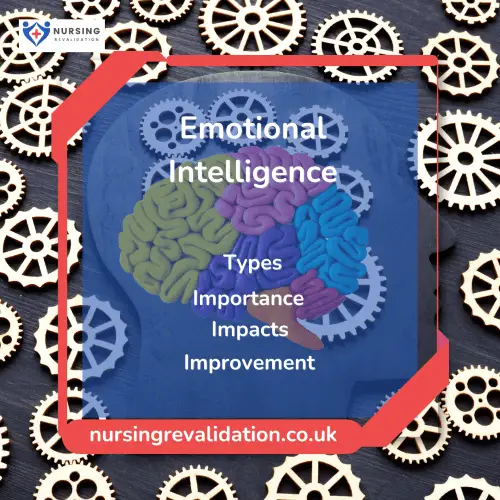Emotional intelligence aids in the development of stronger relationships, academic and professional success, and the attainment of career and personal objectives. It can also assist you in connecting with your emotions, putting your intentions into action, and making knowledgeable choices.
What is Emotional Intelligence?
The ability to sense, control, and assess emotions is referred to as emotional intelligence (EI). Some academics believe emotional intelligence can be taught and improved, while others believe it is a natural trait.
What are the types of emotional intelligence?
There are four attributes usually used to characterize emotional intelligence:
- Self-control – You can regulate impulsive sentiments and behaviors, manage your emotions in healthy ways, take initiative, keep promises, and adjust to changing situations.
- Self-awareness – You are aware of your own feelings and how they influence your ideas and actions. You are aware of your talents and flaws and are self-assured.
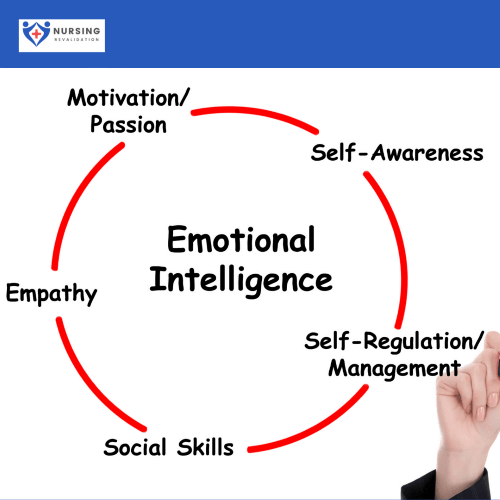 Empathy – You are socially conscious. You can read other people’s feelings, needs, and concerns, pick up on emotional cues, feel at ease in social situations, and recognize power dynamics in a group or organization.
Empathy – You are socially conscious. You can read other people’s feelings, needs, and concerns, pick up on emotional cues, feel at ease in social situations, and recognize power dynamics in a group or organization.- Relationship management – You understand how to build and maintain positive relationships, communicate effectively, inspire and influence others, collaborate effectively, and resolve disputes.
Impacts of Emotional Intelligence
EQ helps you to improve the following skills:
Your academic or professional performance:
High emotional intelligence can assist you in navigating the social difficulties of the job, leading and motivating people, and achieving professional success. In fact, many firms now consider emotional intelligence to be as significant as technical aptitude when evaluating critical job candidates and use EQ testing before hiring.
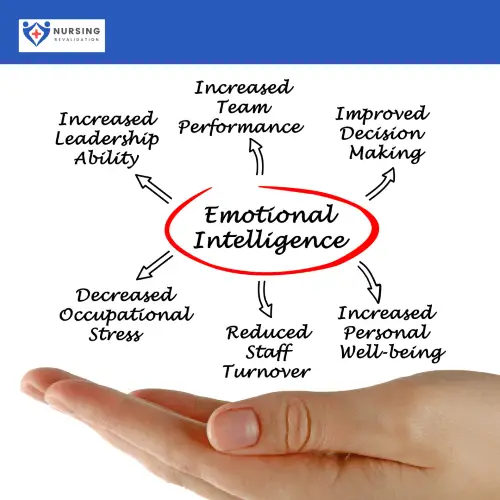 Physical health:
Physical health:
If you can’t control your emotions, it’s likely that you can’t control your stress. This can result in major health issues. Uncontrolled stress elevates blood pressure, inhibits the immune system, boosts the risk of heart attacks and strokes, causes infertility, and accelerates the aging process. Learning to manage stress is the first step in increasing emotional intelligence.
Mental health: Uncontrolled emotions and stress can have a negative impact on your mental health, putting you at risk for anxiety and depression. You’ll find it difficult to create strong connections if you can’t comprehend, accept, or manage your emotions. This, in turn, might make you feel lonely and isolated, exacerbating whatever mental health issues you may have.
Your relationships:
You’ll be better equipped to express yourself and comprehend how others feel if you understand your emotions and how to control them. This enables you to communicate more effectively and build deeper relationships in both your professional and personal lives.
Social intelligence:
Being in touch with your emotions is a social benefit, as it allows you to connect with other people and the world around you. You can identify a friend from an adversary, gauge another person’s interest in you, relieve stress, regulate your nervous system through social dialogue, and feel appreciated and happy if you have social intelligence.
Why Emotional Intelligence is Important
According to science, emotions precede thought. When our emotions are high, our brains function differently, reducing our cognitive capacities, decision-making abilities, and even interpersonal skills. Understanding and controlling our own (and others) emotions can help us achieve greater success in both our personal and professional lives.
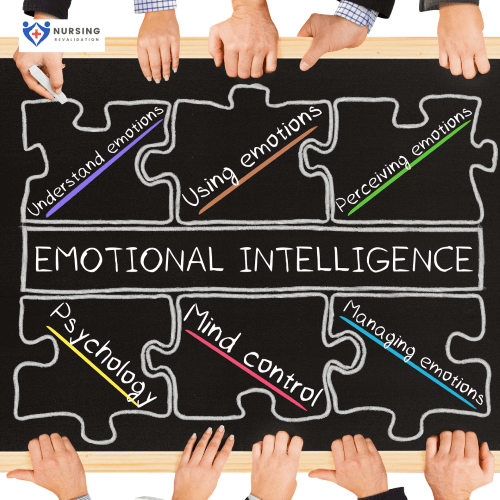 On a personal level, emotional intelligence enables us to:
On a personal level, emotional intelligence enables us to:
- Have difficult talks without hurting others’ feelings
- Manage our emotions when pressured or overwhelmed
- Improve our relationships with those we care about
At work, emotional intelligence may assist us in
- Resolving problems
- Coaching and motivating people
- Promote a collaborative atmosphere
- Developing psychological safety within teams
How to improve emotional intelligence?
Some people are born with EQ, while others consider it to be a skill that must be learned. It is possible to improve or strengthen it with practice.
Here are a few ways for doing so:
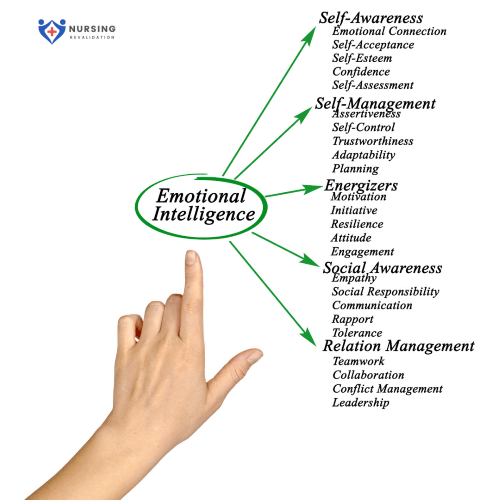 Self-awareness:
Self-awareness:
Consider making journaling a regular part of your day or week. This can help you reflect on how you interacted with others and form a list of what bothered you. You can go back and read them whenever you want to “learn” them. You can also meditate and pay attention to your own ideas
Self-regulation:
Deep breathing exercises should be practiced on a regular basis, especially during times of conflict. Challenges can be reframed as opportunities in disguise, and “failures” can be reframed as learning chances. Try to accept any feelings that arise with extreme acceptance and explain what you’re feeling.
Motivation:
Consider taking a break and congratulating yourself on each of your accomplishments. It’s a good idea to figure out your “why” when you decide to try something new. Breaking down your to-do list into bite-size portions, or micro-tasks, and working with an accountability partner or coach can also assist.
Empathy:
Try paying attention to your environment to help you develop empathy. See if you can detect the “energy” of your surroundings. You might also try meeting new people or volunteering for a cause that is important to you. If you’re caught in traffic, peek around and see what you can learn about the folks waiting in their cars.
Social abilities:
Try to put oneself in unfamiliar settings. When you do, strive to keep eye contact and pay attention to your body language. It’s also a good idea to practice active listening. Consider Gandhi’s words: “Speak only if it improves upon the silence.”
Nursing Revalidation offers emotional intelligence training that helps you:
- Understand what emotional intelligence means
- Recognize how our emotional health and physical health are related
- Learn techniques to understand, use, and appreciate the role of emotional intelligence in the workplace
- Understand the different emotions and how to manage them
- Create a personal vision statement
- Understand the difference between optimism and pessimism
- Validate emotions in others
Learn more about our emotional intelligence training and put your life at ease.

